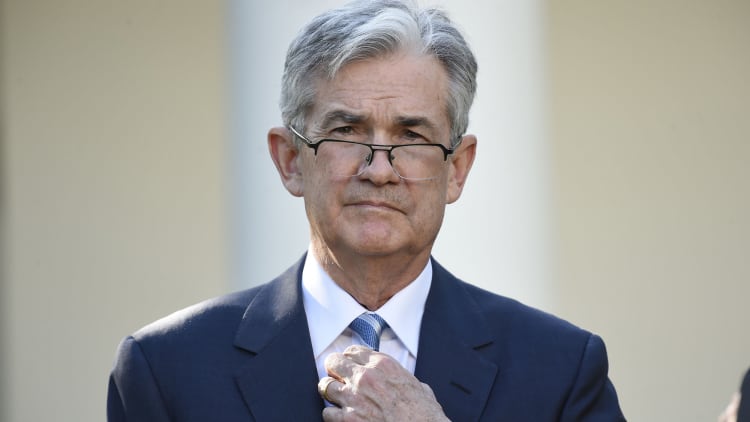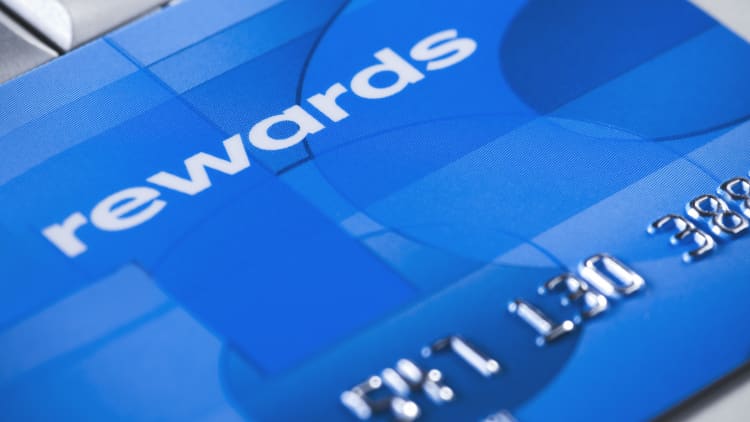
It looks like consumers can expect the interest rates they pay on credit cards and many loans to continue ticking upward at a slow and steady pace.
President Donald Trump on Thursday named Jerome Powell, a former investment banker, as his choice to serve as the next chairman of the Federal Reserve. A member of the Fed's Board of Governors since 2012, Powell is broadly viewed as a policymaker who would carry on the cautious approach to influencing interest rates that's been the hallmark of current Chair Janet Yellen.
"I wouldn't expect any material deviation of that path," said Jonathan Wright, an economics professor at Johns Hopkins University in Baltimore.
Assuming Powell is confirmed by the Senate, he would succeed Yellen when her term ends in February. An Obama appointee, Yellen took over in February 2014 in the midst of an economic expansion that began in early 2009 and is now in its ninth year.
The Federal Reserve is charged with using monetary policy to keep inflation at bay and employment strong, and uses a key interest rate to try accomplishing that. Called the federal funds rate, it's the rate that banks charge one another for overnight loans.
When the Fed nudges that rate up to help cool off the economy by making money more expensive to borrow, banks typically pass on the higher cost of borrowing to consumers in the form of higher rates on loans and credit.
Jerome Powell
Age: 64
Nominated by President Donald Trump to replace Janet Yellen in February 2018 as chair of the Federal Reserve.
2012-current: Member of the Federal Reserve Board of Governors. Appointed by former President Barack Obama.
Career highlights:
2010-2012: Visiting scholar at the Bipartisan Policy Center, focusing on federal and state fiscal issues.
1997-2005: Partner at asset manager The Carlyle Group of Washington, D.C.
1990-1993: Served as undersecretary for finance in the Treasury Department under former President George W. Bush.
Education: Bachelor's degree in politics from Princeton University; law degree from Georgetown University (and editor-in-chief of Georgetown Law Journal).
While the federal funds rate has risen from zero to 1.25 percent under Yellen's tenure — including two hikes of 0.25 percentage point this year — it remains historically low. And on Wednesday, the Federal Open Market Committee, which is the Fed's policy-making arm, left that rate unchanged.
At its next meeting, scheduled for Dec. 12-13, the committee is expected to raise the federal funds rate by another 0.25 percentage point.
"It's not a done deal, but they've made it pretty clear that they are highly likely to [make that increase] in December," Wright said.
While many consumers might pay little attention to the eight meetings the Fed holds annually — or who's at the central bank's helm, for that matter — the interest rates paid on borrowed money (and earned on certain bank accounts) typically trace back to decisions made at these policy-making get-togethers. (Click on graphic below to enlarge.)
Every time the Fed increases the federal funds rate, it's not long before you're paying higher rates on money you've already borrowed unless the account comes with a fixed rate.
For example, if you're among the 38 percent of U.S. households with credit card debt, you can generally count on any move by the Fed affecting the interest you pay on it.
"Fed rate hikes get passed along in a hurry," said Matt Schulz, senior industry analyst at CreditCards.com. "Typically, the increases come within one or two billing cycles of the Fed's announcement."
While they are under no obligation to raise rates when the Fed does, most credit card companies do, Schulz added.
Other loans with interest rates that can change (a so-called variable rate), such as personal loans and home equity lines of credit, also can expect to see increases fairly quickly following a Fed hike.
Fed rate hikes get passed along in a hurry.Matt Schulzsenior industry analyst for CreditCards.com
Exactly what you pay is typically a combination of your bank's prime rate — reserved for the most creditworthy customers — plus a fixed percentage that depends on your credit score. The lower your mark, the higher that extra amount is.
Right now, the average interest rate on general-use credit cards is 16.15 percent, according to recent CreditCards.com data. For retail credit cards, the average is 24.99 percent.
Even though the added percentage is fixed, a bank's prime rate will rise and fall in concert with changes to the federal funds rate.

As for interest paid on checking or savings accounts, money markets and certificates of deposit: That amount also technically should increase as the federal funds rate does. Yet assuming the anticipated hike happens in December, don't expect to benefit too much.
"Deposit rates should also go up but I suspect banks will be reluctant to pass on [the full increase]," said Boragan Aruoba, an economics professor at the University of Maryland.
More from Your Money Your Future:
WATCH: How Powell differs from Yellen & Bernanke







